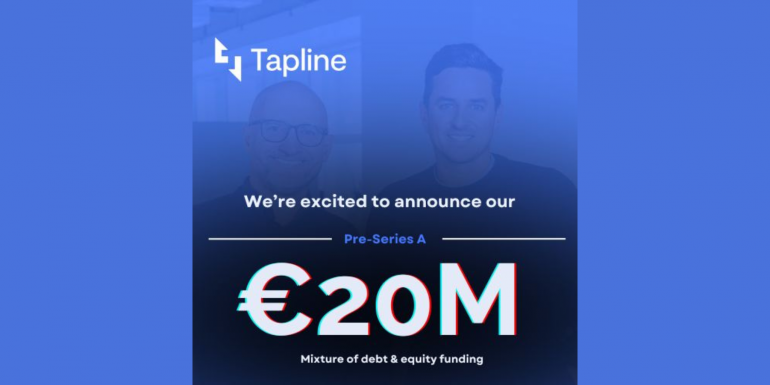
Strategic Investments of the Future: Engaged Investments Conference Brings Investors from Across Eur
This October, Prague’s National House Vinohrady will become a key meeting point for the European tech scene. Over two days, hundreds of investors, startup founders, and innovation leaders will gather at Engaged Investments 2025, an international conference organized by DEPO Ventures and J&T Ventures. The event will take place on October 22–23, 2025, offering participants fresh insights from the startup world and a unique opportunity to connect capital with the tech shaping the future. This year will spotlight critical infrastructure and strategic innovation.

Central Europe's Most Advanced, and Growing with the Engaged Investments Conference
European startups are now looking back on the boom of 2021 with nostalgia. That year, they managed to raise an impressive 117 billion euros from investors. However, the following years saw a sharp decline. By 2023, this had dropped to just 54 billion, and in 2024, it further dipped to 51 billion, according to Crunchbase data. Early-stage funding (seed and angel investments) followed this downward trend.

Czech Republic Has Plenty of Capital, but Quality Startups Remain Elusive
Czech investors were active again in 2024, willing to commit venture capital to startups. However, nearly two-thirds (62.2%) of them flagged the lack of quality startups as the biggest challenge last year, marking an almost 20% increase compared to 2023. These findings come from a survey conducted by the investment group DEPO Ventures.

Flowpay raises €30 million to lend to SMEs and innovate embedded finance
Prague-based FinTech startup Flowpay has secured €30 million from investment manager Fasanara Capital to provide working capital financing for SMEs and become a notable player in the world of embedded finance.

Webout is Redefining Video Personalization with AI and Expanding Globally with Support from DEPO
Creating personalized video content without the need for large-scale production or technical expertise—Webout, a Czech-based startup, is redefining video creation by enabling businesses to tailor content in real-time for each viewer. The startup has secured €100,000 in funding from investment group DEPO Ventures, with additional backing from angel investors Miroslav Michalko, Radek Alenka, and Vladan Hejnic, who formed the Venture Buddies syndicate and contributed €240,000. This brings Webout’s total funding round to €340,000, which will be used to scale its product and expand into international markets.

Business Proposals in Minutes, Not Hours: DEPO Ventures and StartupYard Invest in Ydoca
Automating responses to inquiry forms and generating business proposals—this is what the integrated AI platform developed by the startup Ydoca brings to the market. Their technology seamlessly integrates into every step of the process, leveraging generative AI to boost efficiency by up to 70%. As part of its pre-seed investment round, the startup secured a total of CZK 2.3 million in funding, with DEPO Ventures contributing CZK 1.8 million and StartupYard investing CZK 500,000.

YUMMY Brings a New Way of Home Cooking to the Czech Republic
Our portfolio company, YUMMY, is entering the Czech market with a unique service that allows customers to choose and order the recipes they want to cook and delivers all the necessary ingredients directly to their homes. This innovative way of home cooking originates from Finland, where parent company Ruokaboksi has been operating since 2017. After successfully entering the Estonian market, YUMMY decided to expand its activities to Prague and plans to expand to other Czech cities as well.

German AI Credit Fintech Platform Tapline Raises an Additional €20M to Revolutionize Financing
Our portfolio company, German fintech startup Tapline, specializing in financing SaaS and subscription-based companies, has raised €20 million in a pre-series A round. This investment will enable the company to expand its operations, enhance its platform, and drive the growth of SaaS businesses across Europe. Joining the initial investors, DEPO Ventures and V-Sharp Venture Studio, are Karim Beshara, GP of A15 Venture Capital and Managing Partner of Accelero Capital, Antler, and a bespoke debt facility from WinYield.

NEW Investment: BlueQubit raises $10M to take Quantum software into real-world applications
Integrating quantum computing into real-world computer applications is an ongoing problem, as the platforms are architected fundamentally differently. BlueQubit, a San Francisco-based quantum software startup founded by Stanford alumni, thinks it might have the answer.

Former Czech unicorn team founds AI-powered recruitment startup Finlay
DEPO Ventures announces its investment in Finlay, an AI-powered recruitment startup co-founded by ex-Mews COO, Scott Moran. The €300,000 pre-seed round, led by J&T Ventures alongside DEPO Ventures, aims to redefine how companies source talent across Europe and beyond. With deep expertise from the founding team – including leaders and recruiters from Mews, IBM, Rossum, and Cyrkl – Finlay is set to reshape the recruitment industry.